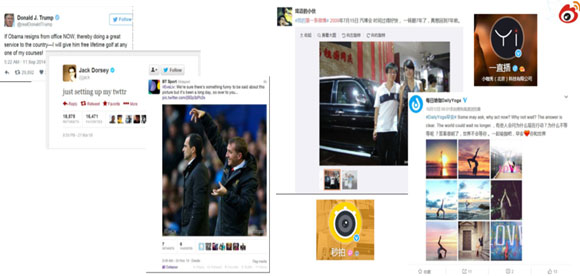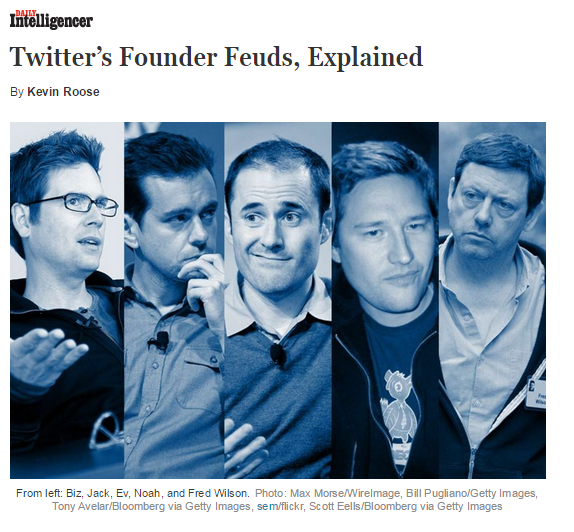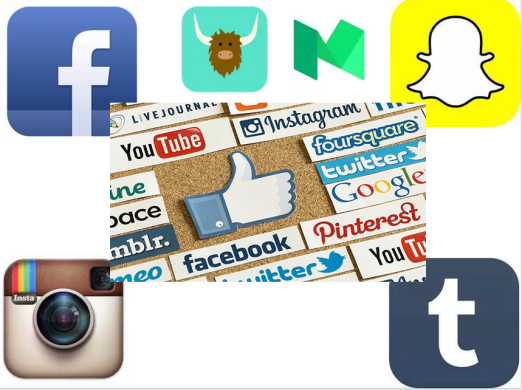China’s Weibo leaves Twitter in the dust

By Chen Lin
When Weibo’s stock price saw a dramatic surge of 135% this year, I had mixed feelings. That’s because two years ago when the company went public, I wrote an article expressing my disapproval and pointing out Weibo’s shortcomings. But in recent years Weibo’s stock price has been skyrocketing and has even overtaken its American role model, Twitter.
China’s internet industry took notice on October 18 when the stock price of Weibo Corp (NASDAQ: WB) rose to US$53.12 with a market value of US$11.3 billion, outperforming Twitter for the first time ever.

This is how Sina, Weibo’s parent company, reacted to the news:
“As a vital enterprise in China’s social media industry, Sina Weibo’s overtaking of Twitter in market value is indeed a milestone event.
In the history of the internet, there has never been a Chinese internet company that enjoys a larger market value than its American counterpart based on the same model. A few examples: when it comes to social platforms Facebook is light years beyond Tencent in terms of market value; as an e-commerce platform, Amazon outperforms Alibaba; as a search engine, Baidu is behind Google; as a sharing economy enterprise, Uber is doing better than Didi.”
Even as Weibo’s prospects brightened, Twitter’s began to fade. The US company is now facing a huge challenge. One after another its shareholders are retreating from their bids. In fact any company that announces its intention to acquire Twitter will see an immediate plunge in its own stock price. In late October, there were reports that Twitter may be laying off 300 employees. Those announced job losses came on the heels of similar cuts made last year when co-founder Jack Dorsey took over as CEO of the ailing company.

Meanwhile, apart from its surging stock price, Weibo has also performed well in other important areas. Its number of monthly active users reached 282 million in June 2016. Those 282 million active Weibo users account for one third of the total number of China’s netizens, and it is still growing. Weibo users can be described as young, from the grassroots level and they know how to get the best out of the various services that are vertically integrated through Weibo. If you are not a regular Weibo user, it means you are getting on in age. Market analysts expect that Weibo’s advertising revenue, which is already growing at a rapid rate of 47%, will be further optimized; and it holds great promise.
In recent years what has Weibo done to improve its performance, and how did Twitter get trapped in a cycle of dismal results?
Conservatism vs. entrepreneurial spirit
Despite perceptions to the contrary in the Western world, Weibo has always been more advanced in product development than Twitter.

Twitter only added photo-posting options to its traditional text-messaging model in 2003, three years after its launch.
In contrast, Weibo has consistently kept up with industry trends – in China and abroad. It has integrated all the functions available from Twitter’s rivals, including social media platforms such as Instagram and Snapchat that are based on photo and video posts. Weibo users were able to post photos when it was launched in 2009, and it later continued to add functions such as video-sharing apps like Miaopai, live video-streaming app Yizhibo, collage and filters, along with numerous other packages through which users could express themselves. It’s safe to say Weibo has far surpassed Twitter in terms of product development.
Internal Strife vs. Unity
One of the reasons for Twitter’s decline has been its divided team. Countless news reports have revealed the fierce internal strife within its management team and company executives are constantly being changed. Potential acquirers walked away after realizing how astonishingly divided the team was. Compared to Twitter’s volatile management team, Weibo’s team is relatively stable. This has ensured continuity in its strategy and operational efficiency, while shoring up shareholder confidence and public trust.

Integration, Monetization, and the KOL Economy
At key strategic moments Twitter, unlike Weibo, was not brave enough to integrate image or video functions such as the ones Weibo used, Yizhibo and Miaopai. At the brink of every acquisition, Twitter was often too stingy. For instance, the company hesitated when it came to investing in Instagram, which was later snatched up by Facebook and eventually rose to become one of Twitter’s biggest rivals. All those missed opportunities, because of a reluctance to invest, are gone forever.

Another important difference between Weibo and Twitter can be seen in their approach to doing business with others: it’s a matter of collaboration vs. acquisition.
With Alibaba’s capital injection in Sina, thanks to Jack Ma, the two axes of e-commerce – Sina and the live video-streaming app Yizhibo – were connected. This gave rise to a group of internet celebrities as e-commerce practitioners.
Twitter has also tried to groom an internet celebrity or key opinion leader (KOL) economy. It worked with Amazon for the May 2014 launch of a “Tweet to Buy” function, which could be found on Twitter’s homepage. But users didn’t like it because of its lousy design, and it eventually had to be removed in 2016. In contrast, that same year Weibo’s internet celebrity economy generated its most revenue.
By the end of October 2016, microbloggers on Weibo raked in 11.7 billion yuan, of which 18.8 billion yuan was generated by promotions that linked to online shopping. Taobao stores run by internet celebrities and starlets have been especially lucrative. In 2015 the entire Tmall and Taobao Women’s Apparel section earned almost 600 billion yuan, with 100 billion yuan coming from stores run by internet celebrities. These personalities are very skilled at using their fan base, and Weibo, as a platform to generate revenue by promoting themselves.
There is one important difference between American internet celebrities and Chinese ones. According to Internal Revenue Service (IRS) rules, all KOLs in the US have to report and pay taxes on their income. However, in China, where it is possible to benefit from loopholes in taxation policies, the KOL economy is still promising. Therefore, Weibo has not only made the ex-girlfriends of Wang Sicong (son of China’s richest man Wang Jianlin) famous, but also forged ahead with an economic model based on increasing commercial traffic by linking products to internet celebrities.
Weibo has also improved its capacity for income generation by launching new products. About 430 million yuan of all microbloggers’ earnings was generated from endorsing products such as Wei Task, Wei Diffusion, and Wei Endorsement. They earned another 470 million for content they generated and posted to their numerous fans. Weibo has obviously taken KOL endorsements a step further than Twitter.
Less Political, More Entertaining
Twitter seems to lack the passion to succeed. In its second quarter earnings for 2014, there was already negative growth in both user number and daily active user number. The situation was dire then, yet Twitter has not made any effort to stem the slide in recent years. It seems Twitter is determined to fail.
In stark contrast, Weibo has clawed its way back from the brink of a make-or-break moment that occurred when WeChat launched its hugely popular official accounts and moments.
Now users are heading back to Weibo, whose user activity growth levels are higher than WeChat’s. What has helped Weibo weather the storm?
In my opinion, Weibo was wise enough not to follow Twitter’s path: it didn’t position itself as a platform for political and current events. Just the opposite. Weibo has made a conscious effort to steer clear of politics.
Between 2009 and 2011, The Wall Street Journal and The New York Times predicted that, with so many well-known thought leaders and Big Vs (verified Weibo users who have more than 500,000 followers), Weibo would become an effective weapon to push forward China’s democratic reform.
In 2011, the Top 10 hottest topics on Weibo were mostly related to political affairs. However, after the scandal of Big V Xue Manzi being arrested for prostitution, Weibo further tightened up and controlled Big Vs’ comments. Since then the trend has been for the “de-politicization” of Weibo.
By the time it went public in 2014, the change in tone was obvious. Key words included reference to the missing MH370 flight, an Ebola outbreak, food safety issues, the Chinese New Year Gala, and the World Internet Conference.
This year, Weibo’s key words have a lot to do with entertainment. They include prehistoric powers, the phrase made popular by Olympic Swimmer Fu Yuanhui, Rio Olympics, Chinese Women’s Volleyball Team, film star Wang Baoqiang’s divorce, Brexit, etc.
It is also interesting to note that if we take a look at the list of most often searched topics on Weibo, the Top 12 only feature entertainment stars, TV programs, and the promotion of movies.
This list also provides insight into Alibaba’s eco system, which includes everything from Alibaba Pictures, content, Yizhibo, video-sharing app Xiaokaxiu, to celebrities. Film companies need big-name stars for exposure and hype, and need fans to drive the economy. They need fans to contribute to the box office, and to help brand building by creating buzz around the products being endorsed by their idols. Weibo itself can even make a mere mortal into a star because of the exposure and wide reach the platform brings. Or it can create a so-called KOL who has a great number of fans on the platform.
Weibo’s pan-entertainment strategy that links a number of businesses together can accelerate its own monetization, connect and shape the industry chain, as well as benefit related industries with which it collaborates.
This pan-entertainment approach also requires that traditionally staid professional Weibo accounts become more entertaining, more relaxed in style, and more accessible to the everyday user. It’s no longer merely about providing high-brow content, but also about skills related to communication, production of short videos, and photography.
Finance expert Mr. Li Daxiao became a Big V because his style is very down-to-earth and accessible. Military expert and Big V General Zhang Zhaozhong’s Weibo posts are full of emotion-conveying stickers and wisecracks. Weibo accounts of police stations, such as “Jiangning Police Online”, which would have struck a more serious tone in the past, gained more traffic and exposure by playing up bromances and telling jokes.
Thanks to these changes, Weibo can no longer be criticized for copying Twitter as it has forged its own path. In the eyes of the Western media that truly understand the digital/social media space, Weibo is no longer merely the Chinese version of Twitter: it is “Twitter plus Facebook plus Instagram plus Snapchat”, a hyper portal that drives traffic to an overwhelming amount of content and also functions as a social media tool.
But Weibo still has its share of problems to solve. For example, taxation: the KOL economy needs better regulations; zombie fans, fake comments and hired fans: false information can cause consumers to make wrong decisions. It is clear that China’s regulatory system has a lot of room for improvement.
What does the future hold for Weibo?
It is said that in the age of new media, the one who owns content holds all the cards.
At this October’s V-influence Summit, Weibo released some exciting news.
As part of long-term plans for content-creation, opinion leaders and microbloggers, Weibo will launch a new grading label, “Golden V”. This upgraded – and cooler looking – label will be granted to microbloggers who have more than 10 million readers. If they fail to meet Weibo’s Key Performance Indicators (KPIs), then their grade will be lowered to the usual orange colored label. Golden V status is expected to boost bloggers’ productivity levels and generate content that is more fun and exciting. Weibo will monetize knowledge, like the business model used by intelligent hardware and integrated solutions provider Fenda’s Q&A app.
Weibo is convinced that it can increase its levels of monetization by providing an increasing volume of fun content.
A Final Word:
Western strategists need to rethink the old view of Chinese internet companies as being only capable of C2C (copy to China), copying from others without a shred of their own creativity. Today both Weibo and WeChat have raised eyebrows globally because they have not only done better when it comes to localization, but they have also done a better job fulfilling consumers’ various needs.
Behind the powerful data of Weibo stands an even more powerful team that implements its strategy. They seamlessly link Weibo to Youku and Tudou, as well as to the film and entertainment industries and e-commerce, giving rise to a very lucrative KOL economy.
And let’s not forget Weibo’s smart decision to stay above the fray of politics, opting instead to firmly entrench itself in an industry chain where it can give full play to the area in which it has a strong advantage – entertainment.
Weibo’s strength begs the question: if American internet companies finally get access to the China market, will they truly be able to compete with local brands?
Chen Lin is Assistant Professor of Marketing at China Europe International Business School (CEIBS)













